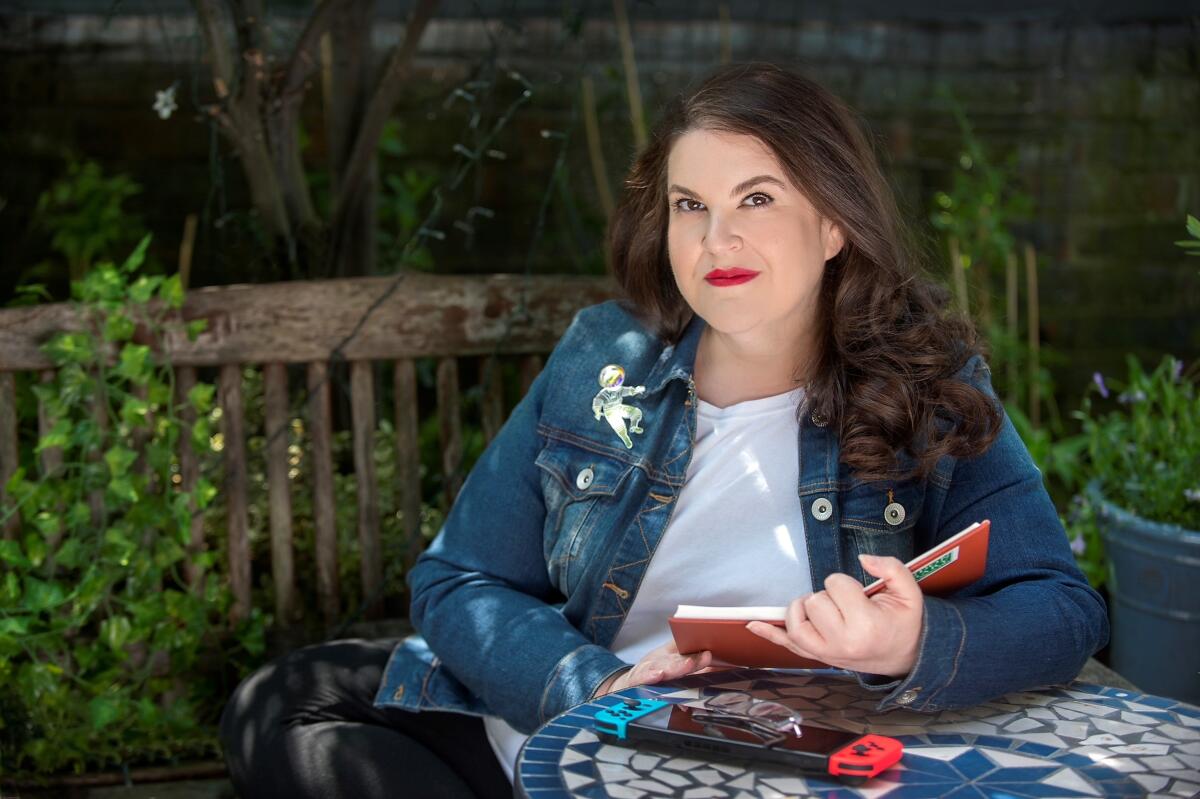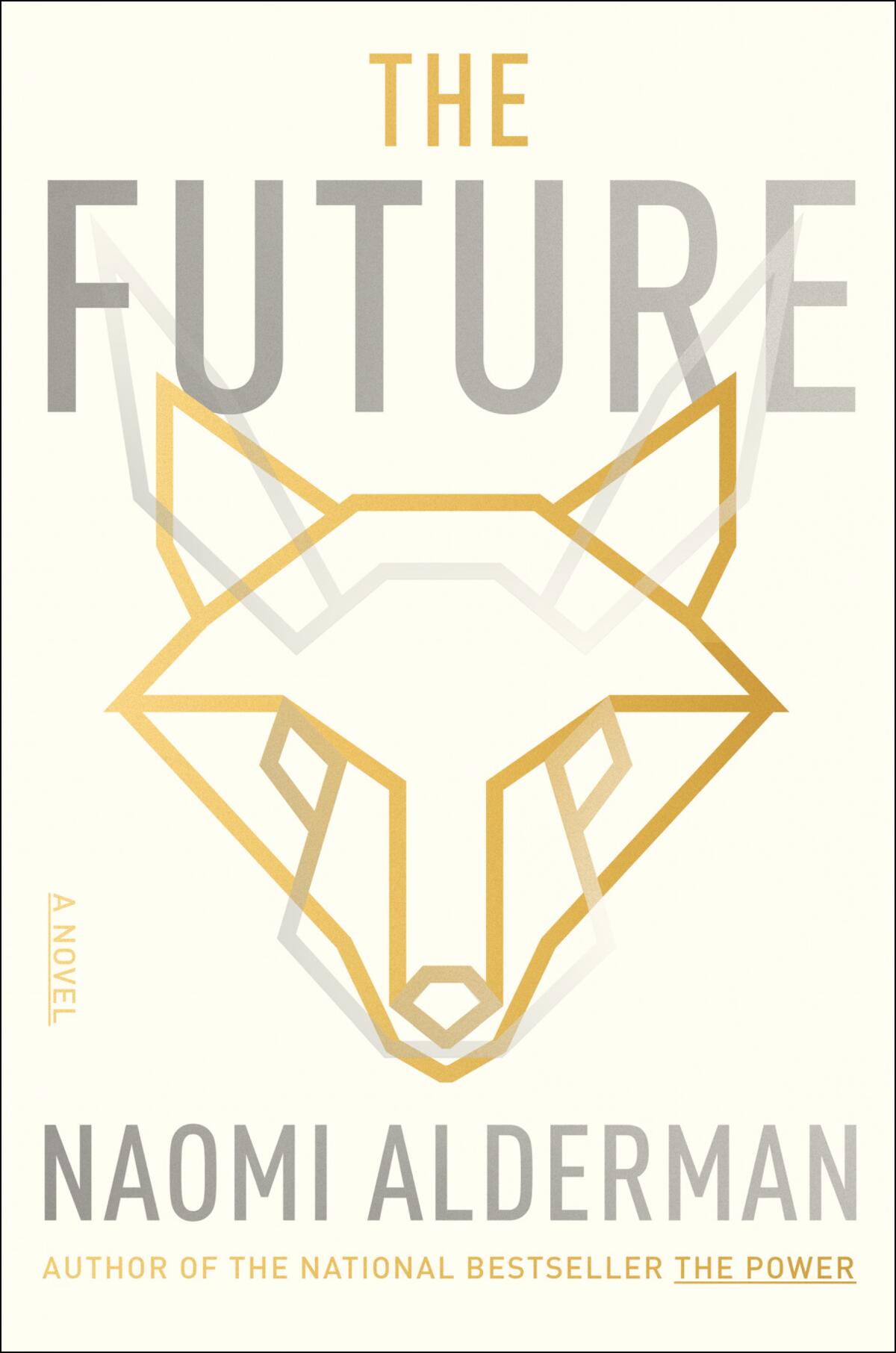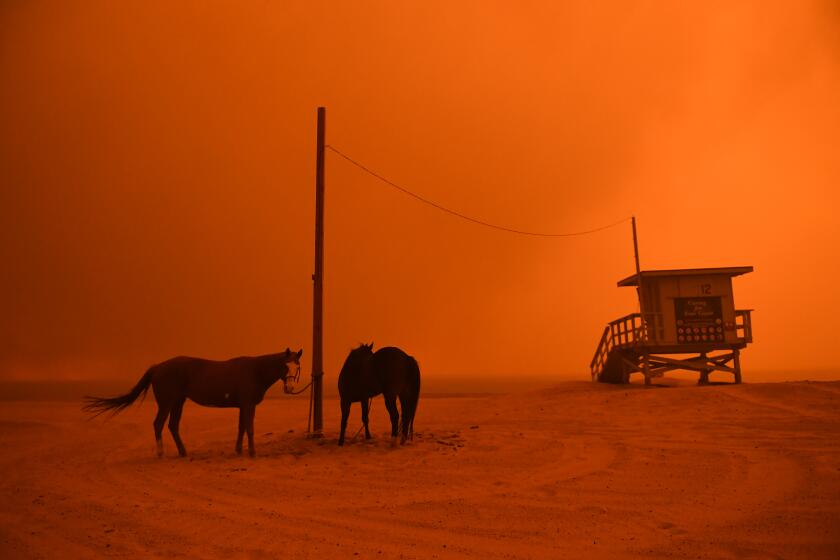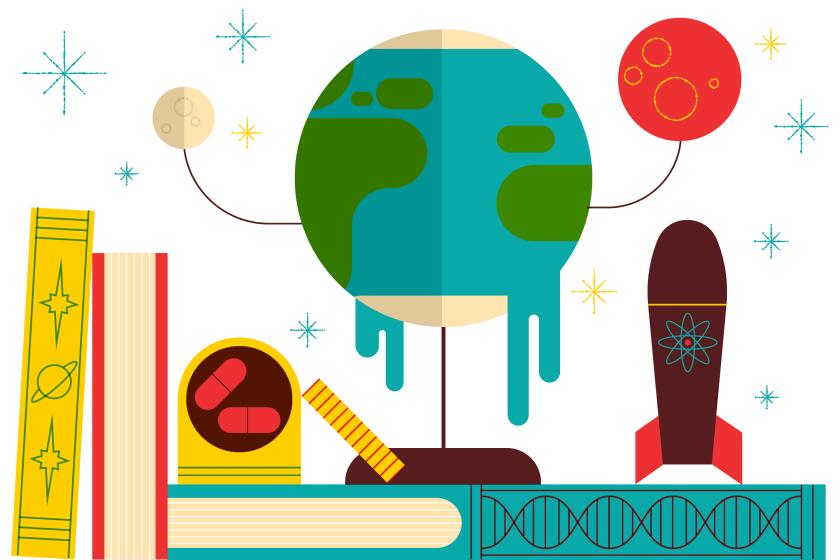In ‘The Future,’ as in the present, it’s billionaires vs. cult leaders vs. influencers

- Share via
Review
The Future
By Naomi Alderman
Simon & Schuster: 432 pages, $29
If you buy books linked on our site, The Times may earn a commission from Bookshop.org, whose fees support independent bookstores.
It’s well known by now that the super-wealthy are planning for the apocalypse. Whether they’re buying luxury bunkers or island nations, it’s clear that billionaires are preparing for the end of days with lavish and secure spaces where they hope to ride out whatever catastrophe might strike humanity next.
Beginning Naomi Alderman’s new book, “The Future,” you’d be forgiven for thinking that its main subjects are exactly such billionaires, as the first three chapters describe mega-wealthy tech giants Lenk Sketlish, Zimri Nommik and Ellen Bywater, each learning that it’s time to run to their refuges of choice. But the novel is not really about them, and thank goodness for that; it would be hard, I suspect, for many readers to sustain interest in the richest people on Earth living easy while the rest of humanity struggled.
The plot of “The Future” really focuses on the events leading up to the billionaires receiving notice that the end is nigh. Alderman’s fifth novel closely follows two very different sorts of survivalists: Martha Einkorn, raised in a cult she escaped from, now a personal assistant to Sketlish; and Lai Zhen, a former refugee and “a Top Fifty Creator on the Name The Day forum and ranked number one for expertise in technological survival” — which is to say, a survivalist influencer (this is already a real thing).

We learn of Martha in the first chapter, but we meet Zhen several months before the billionaires are forewarned. She’s at the Seasons Time Mall in Singapore, the biggest retail experience in the world, where she suddenly needs to go into true survival mode because she’s just been shot at by what she’ll deduce is an Enochite extremist. The Enochites, coincidentally, are the cult from which Martha escaped — in fact, she is the leader Enoch’s daughter.
“The Enochites,” Zhen recalls, “thought the end of days was coming soon. They were gathering evidence, piecing together prophecies with current events, matching one thing with another.” Since Zhen teaches people to survive — rather than wait for God to decide who lives or dies — and since she’s very visible on Name the Day (a survivalist forum the Enochites organize on), it’s not inconceivable that she would become a target. What’s far more mysterious is why her wearable smart device has a program on it called AUGR, which helps her neutralize her would-be-assassin.
The mysteries accumulate in part because the novel is told out of chronological order, beginning with the end — or, at least, an end — and jumping back and forth between various events leading up to it, ramping up the tension and dropping in nuggets of information along the way. In between the sections, there are extracts from Name the Day, many of them posts from OneCorn, a frequent user who often writes about Genesis — especially the stories of Sodom and Gomorrah, Abraham and Lot.
Lydia Millet, whose latest novel, “A Children’s Bible,” tackled climate change, reads new fiction on climate and argues against calling it a genre.
“So the Talmud says it was an evil place,” OneCorn writes. “It was a crime in Sodom to feed the hungry and clothe the naked. Beggars were given marked coins that no shop would accept. Welp. In the USA right now there are places where it’s a crime to help homeless people. Plenty of stores don’t accept food stamps. So are we in it? Do we have enough sense to get ourselves out if we are?”
Are we? Do we? In real life, it remains to be seen, but “The Future” gives us one possible answer. Much as it’s about a potential future, this is also recognizably our world; social media reigns supreme while the billionaires who own them pretend they don’t control the world by complaining — for example — about how hard it is to find plastic straws.
“The Future’s” largest tech companies aren’t Google, Amazon, Apple and Meta, but rather Fantail (think Meta on steroids), Anvil (a kind of Amazon+++) and Medlar Technologies (a personal computing company, something like Apple and Microsoft combined). These companies aren’t the root of all evil, of course, but much like our own tech giants, they’re near-monopolies that emphasize the accumulation of wealth and the development of new tech over morality or the common good, all the while loudly claiming to benefit humanity.
Alderman has written about the end of the world before. In her bestselling novel “The Power” (which Anvil — sorry, Amazon — has adapted into a TV show), a cataclysmic set of events sends humanity back to the Stone Age and a different sort of society emerges from the ashes. But “The Future” is less grim; instead, it harbors a stubborn sense of optimism, theorizing that if only people of conscience helmed the richest and most powerful companies, they might be able to steer the ship of humanity to safety.
L.A.s 13 most essential works of speculative fiction, from Octavia Butler, Philip K. Dick, Aldous Huxley, Salvador Plascencia and many more.
I could nitpick the details in Alderman’s approach — a glaring hole in her tech-optimism, for instance, is a disregard for the influence wielded by the oil industry and its shareholders — but I’d rather not. “The Future” is so pleasing and page-turning a read, so full of intrigue, emotional depth and a delicious conclusion that I didn’t want it to end. That Alderman — who was raised Orthodox Jewish — manages to mine the Book of Genesis in exciting ways, making accessible the parables of community, conflict and survival found in its pages, is an added and surprising bonus. It’s almost enough to make you believe, despite the evidence, that the bleakest of futures isn’t inevitable.
Masad is a books and culture critic and author of “All My Mother’s Lovers.”
More to Read
Sign up for our Book Club newsletter
Get the latest news, events and more from the Los Angeles Times Book Club, and help us get L.A. reading and talking.
You may occasionally receive promotional content from the Los Angeles Times.









